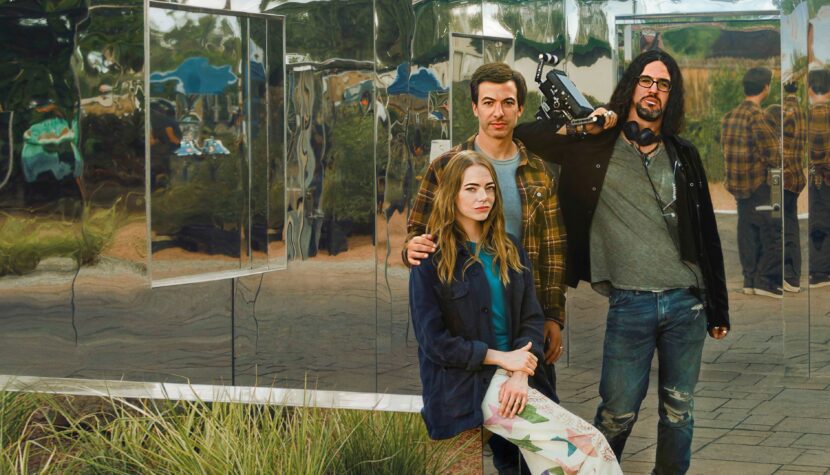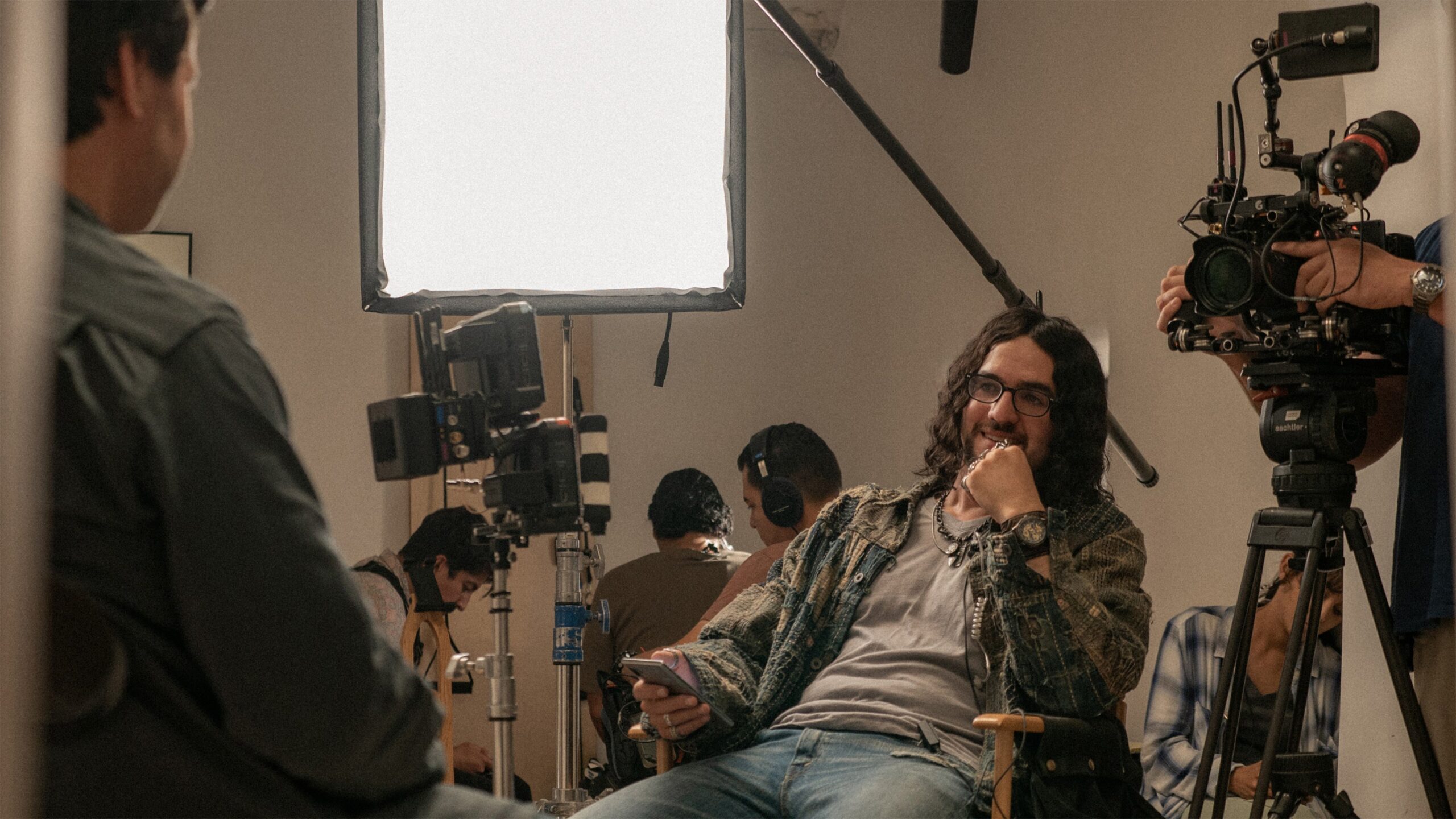THE CURSE. Look at Us All [REVIEW]

The Curse is allegedly a comedic series. That’s how it appears. Whitney and Ash design, build, and attempt to sell several passive houses that are beautiful, ecological, ergonomic, and constructed with respect for the local community. To promote the project with the catchy name Flipantrophy, and with the support of Ash’s college friend, the eccentric director Dougie, the couple films a reality show. Everything goes (almost) perfectly until a chance encounter with a girl outside a supermarket leads to the girl bizarrely cursing Ash…
Benny Safdie (Uncut Gems, Good Time), this time in collaboration with Nathan Fielder (Nathan for You), offers viewers an intelligent ten-episode reflection on the current meaning of “reality.” Reality shows, though of course to some extent directed, originally aimed to be as authentic as possible in their interactions among participants. Today, it’s hard to find the “reality” in them because the emphasis on the “show” is too great. And that’s what The Curse demonstrates.
The central character of the series is Asher Siegel (Fielder), who, along with his wife Whitney (Emma Stone), embarks on a project to build a small community of passive houses. Whitney, an idealist with a girlish charm, focuses on the project’s aesthetics—she conceived the idea of glass (literally, as the showcase home’s facade is covered in mirrors) houses and integrating them into the local community to complement and activate it. Ash, on the other hand, handles practical matters—he suggested several solutions to enhance the building’s ergonomics, manages promotion and sales. He recruits his friend Dougie (Safdie) to direct the show about Philantropy in collaboration with a television station.

From the first minutes of the first episode, hypocrisy pours from the screen. Whitney’s warm smiles are grimaces hiding barely restrained frustration. Ash’s commitment is a marketing ploy, driven by crude calculation. Behind the camera, Dougie plays his own game, shamelessly manipulating the couple. Everything the Siegels touch is a decoration—their project, their marriage, their lives.
The Curse’s script is brilliant and brutal. The titular curse is just a pretext easily forgotten—the scene with the girl and later her family is just another element in the bubble the characters inhabit. Gems like the scene with Whitney and her parents evoke physical discomfort, watching a spoiled, financially dependent girl with zero grasp of reality artificially smile and claim she’s an adult woman. It’s clear she has little understanding of adulthood. Ash is equally repulsive in the supermarket scene—his feigned generosity, orchestrated sympathy, and then embarrassing attempts to retrieve money given under the watchful eye of cameras, and his equally embarrassing fear of the consequences of the girl’s unexpected words provoke disgust. Episode after episode, viewers are served such experiences, mocking the performative actions witnessed in everyday life. All these forced smiles, extended helping hands that vanish as soon as the camera lights go out, assurances of respect towards [insert any group], followed by a contract full of clauses and conditions—it’s the bubble we all live in.

If you didn’t know Benny Safdie’s work or if you did and claim not to understand the phenomenon of Emma Stone—watch The Curse. I’m not saying she reaches the heights of her abilities here; I think those are still far away, but she certainly delivers a performance that’s hard to forget. She’s a complete actress, able to play a person playing another person (you know that meme with Helena Bonham Carter playing Emma Watson playing Hermione playing Bellatrix? That’s roughly what I mean), and she does it absolutely believably. Whitney Siegel initially seems like a young woman who means well, though she gets slightly lost in it. As she sheds her masks one by one, revealing frustration, anger, cruelty, and even, perhaps most challenging, plain, ordinary stupidity, Emma Stone nears perfection. Fielder has it somewhat easier in his role as Ash, as his character is much less expressive. Siegel is a softy, lacking in self-assurance, not standing out and completely subservient to his pedestal-placed wife in this relationship. It’s a bold portrayal that deserves recognition, especially since Fielder manages to make the viewer, theoretically sympathetic—because Ash is the typical last-picked during every dodgeball lesson—feel disgust. Safdie as Dougie is the final point of this perfect triangle—an initially enigmatic observer, increasingly involved in what happens with the Siegels off-camera. The character raises the most doubts—a friend of Ash’s who refers to him at best with reserve, doesn’t hesitate to mock him, smoothly transitioning from a neutral off-screen voice to the director of events.
Watching The Curse is like crashing a party halfway through when you’re not sure if you were invited. Conversations halt as you approach different groups and resume as soon as you leave. Discomfort accompanies every step, and we’re absolutely certain that something we’ll regret will happen soon—yet a sick curiosity prevents us from leaving. Although the final episode veers unnecessarily and a bit too far into absurdity from satire in my opinion, it’s still worth attempting. It’s intriguing to watch.

